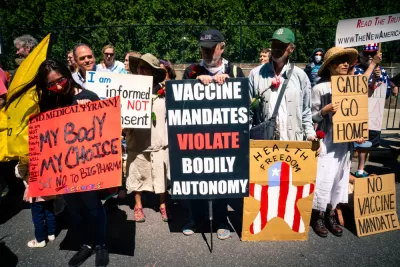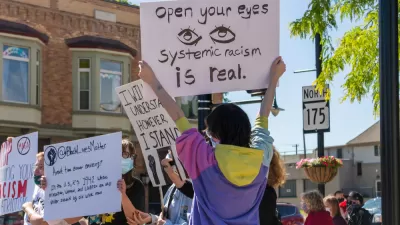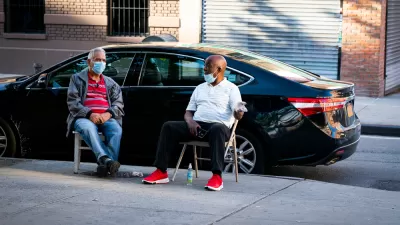For most of the Covid-19 pandemic, Black Americans died at much higher rates than White Americans. That trend has reversed at times during the past year.

The racial and environmental justice issues brought to the forefront by fatality rates from Covid-19 at the beginning of the pandemic, with Black Americans dying at much higher rates than White Americans, has completely reversed in 2022, according to recent analysis by the Washington Post.
"The imbalance in death rates among the nation’s racial and ethnic groups has been a defining part of the pandemic since the start," according to a feature article by Akilah Johnson and Dan Keating. That's no longer the case, however. "Over time, the gap in deaths widened and narrowed but never disappeared — until mid-October 2021, when the nation’s pattern of covid mortality changed, with the rate of death among White Americans sometimes eclipsing other groups," write the duo. The analysis found that the racial disparity vanished at the end of 2021.
As noted in the article, Covid fatality rates in Black Americans are influenced by poor public health outcomes from environmental conditions in Black communities. Black Americans suffer from higher rates of hypertension, diabetes, and obesity than White people—all of which contribute to higher rates of fatalities from Covid-19.
But, Covid-19 is also more likely to kill the unvaccinated, who are more likely to be Republican and White.
As noted in the article, Black Americans aren't the only racial group dealing with the consequences of unhealthy environments during the pandemic: "Cumulatively, Black, Latino and Native American people are 60 percent more likely to die of covid," according to the article.
The percentage could continue to balance if the trends identified in the source article below continue, as they would seem prepared to do with Covid continuing to mutate and vaccination rates continuing to decline.
FULL STORY: Whites now more likely to die from covid than Blacks: Why the pandemic shifted

Maui's Vacation Rental Debate Turns Ugly
Verbal attacks, misinformation campaigns and fistfights plague a high-stakes debate to convert thousands of vacation rentals into long-term housing.

Planetizen Federal Action Tracker
A weekly monitor of how Trump’s orders and actions are impacting planners and planning in America.

In Urban Planning, AI Prompting Could be the New Design Thinking
Creativity has long been key to great urban design. What if we see AI as our new creative partner?

Pedestrian Deaths Drop, Remain Twice as High as in 2009
Fatalities declined by 4 percent in 2024, but the U.S. is still nowhere close to ‘Vision Zero.’

King County Supportive Housing Program Offers Hope for Unhoused Residents
The county is taking a ‘Housing First’ approach that prioritizes getting people into housing, then offering wraparound supportive services.

Researchers Use AI to Get Clearer Picture of US Housing
Analysts are using artificial intelligence to supercharge their research by allowing them to comb through data faster. Though these AI tools can be error prone, they save time and housing researchers are optimistic about the future.
Urban Design for Planners 1: Software Tools
This six-course series explores essential urban design concepts using open source software and equips planners with the tools they need to participate fully in the urban design process.
Planning for Universal Design
Learn the tools for implementing Universal Design in planning regulations.
planning NEXT
Appalachian Highlands Housing Partners
Mpact (founded as Rail~Volution)
City of Camden Redevelopment Agency
City of Astoria
City of Portland
City of Laramie





























